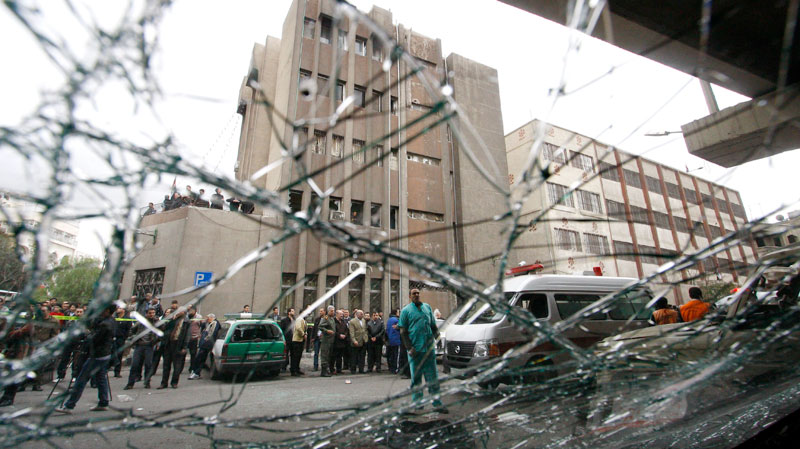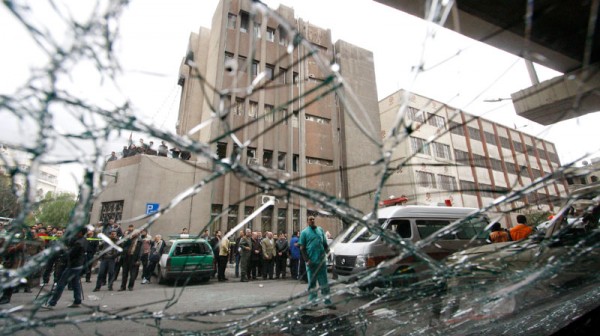
A wave of fear is spreading through the Syrian capital, emptying its normally bustling streets and crowded cafes and leaving a ghost town at night as residents hurry home, worried that recent deadly explosions may herald yet more violence.
Unlike other Syrian cities – and its own suburbs – Damascus has until recently experienced few of the protests against President Bashar al-Assad that have engulfed the country since March. But two major bomb blasts in the last two weeks that killed at least 70 people have changed things in the city.
“People have stopped buying. Days can pass without even one client,” said the owner of a clothes shop in Hamra Street, in the heart of Damascus. “After the explosions we are closing down early, we do not know when this street will be targeted.”
By nightfall city centre streets are deserted, shops are closed, taxis disappear. Famous cafes like Havana and Al Rawda, where customers used to queue for a seat, are now empty.
Employees are leaving work early and parents are worried about sending their children to school.
As the insurgency has spread across the country, tens of thousands have taken to the streets of the capital to show public support for Assad.
But many residents say quietly that anti-Assad sentiment is growing, fuelled by frustration at price rises and the growing sense of instability.
“Despite the calm on the surface, fear has spread in Damascus. You can sense fear and nervousness in the faces of people,” said one Syrian who lives in the centre of the capital.
“The city feels like a ghost town from 7pm. Few people go out and there is big security presence. It’s gloomy.”
Three explosions have ripped through the capital in the past three weeks, killing dozens. On December 23 at least 44 people were killed by what Syrian authorities said were two suicide bombings against security buildings. Last week a suicide bomber killed 26 people at a busy Damascus crossroads.
Residents said they feared the violence would grow worse as the revolt against Assad’s rule became more bloody. Some doubted the government’s view that militant groups were responsible.
“I am scared now, more than before. I do not know when and where the next explosion is going to happen,” said one Damascene called Adel.
“An explosion could happen anywhere now … People are not visiting each other as they used to and go out of their houses only if they have to.”
Largely peaceful protests across Syria, triggered by anger and frustration at corruption, poverty and lack of freedom, have met a tough government response. The UN says more than 5,000 civilians have been killed.
The authorities say they are battling Islamist militant groups who have killed 2,000 members of the security forces.
The impact of civilian protests is gradually being submerged beneath that of bands of army deserters who are taking the fight to the security forces.
In Damascus one shop owner named Ghassan said people in his neighbourhood believed the recent explosions – both on a Friday – were an attempt by the authorities to deter anti-Assad protesters from taking to the streets after Friday prayers.
“They want to scare us …” he said.
Economic sanctions imposed by the international community are taking their toll, and prices of food and other goods have risen. People are reluctant to go out except for essential goods.
“I have no peace of mind any more, after the second explosion I stopped eating or sleeping,” said Nisreen, who started walking her daughter to school after the blasts.
“We feel we are all targeted. Those who support (Assad) or are against him or those who are not taking sides.”
Analysts warn that the increasing violence could push Syria into a sectarian civil war pitting majority Sunni Muslims against members of Assad’s minority Alawite sect, an offshoot of Shia Islam, who form a ruling elite.
The sectarian division is already felt in the capital.
“I live in a building with Christians, Alawite and Shia. We stopped drinking our morning coffee together,” Umm Adel said.
“So far we do not hate each other but I know that my Alawite neighbour is scared of me and she now ignores me. In return I don’t try to talk to her,” she said.




